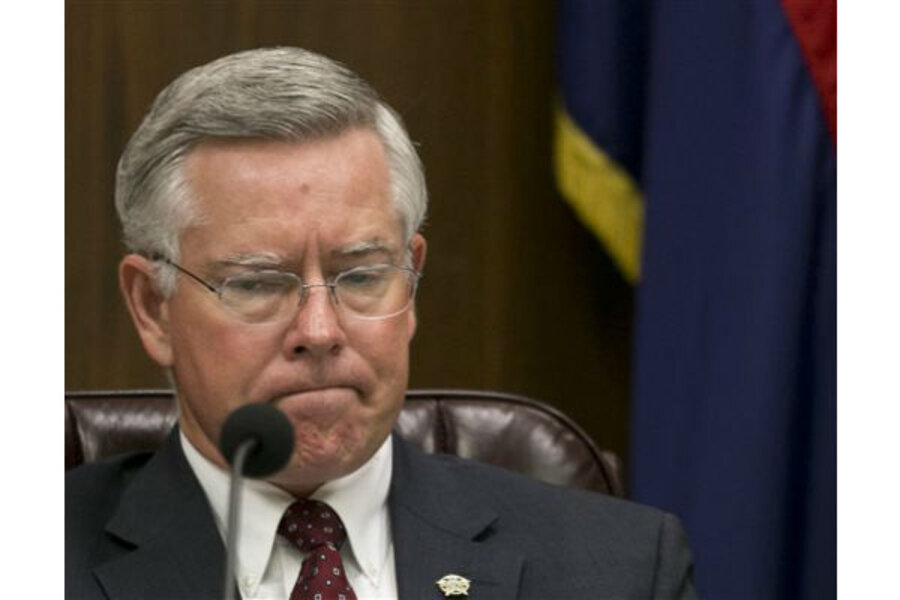Arizona tackles backlog of child abuse reports
Loading...
An Arizona government official says his department will review more than 6,000 unexamined reports of child abuse and neglect by Dec. 2.
The director of the Department of Economic Security, Clarence Carter, also said in a plan submitted Monday night that all reports forwarded to case workers will be investigated by Jan. 31.
Mr. Carter sent the plan to members of the Legislature's Child Protective Services oversight committee.
Carter revealed the problems with the botched cases last week and was grilled by members of the oversight committee on Nov. 21. He told the committee he would deliver the plan by "the close of business" Nov. 25.
Child advocates have said that the debacle in Arizona reflects a common problem nationwide as child protective agencies are burdened with high case loads, lack of funding, and dismal resources that force social workers to prioritize calls based on the most egregious reports.
Still, the reports need an initial review to determine whether they are worthy of investigation, said Michael Petit, president of the advocacy group Every Child Matters and former commissioner of Maine's Human Services Department, which oversees child protective services.
"They can't just park them and say we're really busy and put them aside," Mr. Petit said Monday.
Carter has identified a number of Child Protective Services staffers who will be assigned to investigate the cases, department spokeswoman Tasya Peterson said earlier Monday. An exact number of staffers hasn't been determined, but Gov. Jan Brewer has approved using overtime for the urgent job.
So far, authorities re-examining the cases have identified at least 125 in which children were later alleged to have been abused. No deaths have been connected to the lapses.
Brewer added 200 new CPS positions in her budget this year to help the agency deal with skyrocketing case loads.
Meanwhile, state police are reviewing how the mistakes occurred. A captain, sergeant, and four detectives will have their caseloads reassigned and focus only on the CPS investigation.
The investigation is designed to determine who authorized the cases to be designated as "not investigated" and to review the department's policies. It is administrative in nature, and any findings of potential criminal actions would be handled by another team or agency, Department of Public Safety spokesman Bart Graves said.
State law requires that reports phoned into a child abuse hotline be investigated. Yet beginning in November 2009, some cases were closed before being sent to a field office for investigation by a team of specialists trying to clear a backlog, Mr. Graves said.
The practice was suspended, briefly renewed the next year, and suspended again.
However, beginning about 20 months ago, a new team designed to help the agency overcome an ongoing backlog revived the practice. More than 5,000 of the 6,000 cases that were not investigated happened since that time.
Law enforcement agents assigned to the agency's child welfare investigations unit discovered the closed cases in recent weeks.
Carter has said cases were pulled before they reached field investigators based on a review by a special team whose goal was to focus field investigators on the most serious cases.
Petit suggested the agency just had too many cases to handle.
"When you've got 6,000 backlogged cases, that's not a function of a lot of people goofing off," he said.
However, Petit added, the problem won't be easy to address without a huge increase in staff at the Arizona agency, and the issue will be compounded as calls keep coming.
"If they're going to do a retroactive on these 6,000 cases," he said, "they're going to have the same problems six months later if they don't address the problem that led to this in the first place."
Some Democrats have called on Carter to resign. But Brewer, a Republican, is standing by him – for now.
"Once we know what happened, then accountability will take place," Brewer spokesman Andrew Wilder said.
___
Associated Press writer Brian Skoloff contributed to this report.





